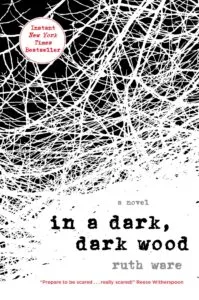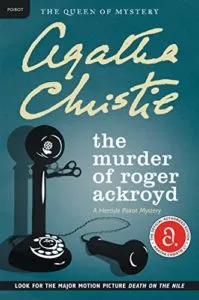
What Is An Unreliable Narrator? The Different Types
My first introduction to the idea of an unreliable narrator was through a story by Donald Barthelme in my first English class in college. Young me felt so flummoxed by the concept of not being able to trust the person who was telling me the story that I had a distaste for it for the next decade or so. Now I can’t even remember what story it was, although my instinct is “The School.” In any case, this was not the best way to introduce me to this concept. It’s the literary equivalent of jumping into the deep end of an Olympic sized pool to learn how to tread water. Now that I’m older, I’m interested in discovering more: what is an unreliable narrator, and what are the most common types we run into in literature?
Please note that I will be mentioning a few books below when going more into detail the idea behind unreliable narrator. Some of these discussions will include spoilers.
What Is an Unreliable Narrator?
By definition, an unreliable narrator is a character who tells a story with a lack of credibility. That seems like a very basic blueprint. But it also gives the writer a little more leeway, since it opens up the opportunity for there to be multiple facets to this spectrum.
There are narrators who are purposefully unreliable, which I would say are the most popular one. We also see narrators who are unreliable simply because they don’t remember how an event happened for whatever reason. This tends to be due to trauma or drug and/or alcohol usage. In either case, though, there was a sense of unease between them and the reader, because we may not know why we don’t trust them; we just know that we don’t.
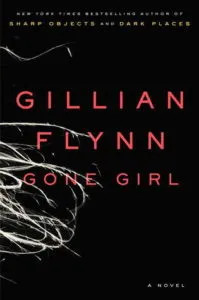
This is something that we have gone over before here at Book Riot. There was also a whole episode of Read and Dead dedicated to it. When this episode aired, there was a string of books that surrounded an unreliable narrator, primarily Gone Girl, which was also recently the subject of a recent episode of Adaptation Nation. I agree with the Katie’s statement that in general these types of books often “feel contrived…not realistic or way overhyped.” Most readers have been burned by the betrayal of a hyped book falling flat.
Another thing mentioned there is that the trend as of late appears to be unreliable female narrators. Katie and Rincey mention how, at the time, it grated. They’re not wrong. One thing I realized while working on this article was that all but one of the books that came to mind when thinking of unreliable narrators had female voices. There’s a lot to unpack there, since it seems to try to weigh into the idea that females are less reliable than male counterparts which, to say the very least, is annoying.
The unreliable narrator is something that most readers have a love/hate relationship with. Ultimately, it comes down to how talented the author is and how well they approach it. There are also variations of the unreliable narrator.
Types of Unreliable Narrators
Today, I am going to go over a few of the types with a more in-depth explanation of each, including an example in popular fiction. Again, please note that this will involve going into the specifications about the book, so here’s another spoiler warning.
The Unintentional Unreliable Narrator
I describe this one as someone who is completely unreliable and you know they are; but it’s not their fault. They are not purposefully leading you astray. They honestly believe they’re telling you the truth when they initially state their tale and aren’t trying to trick you; it’s just that for whatever reason their memory is cloudy. This is usually due to some type of substance abuse or traumatic experience. After they go through it, their brain purposefully blocks out what actually happened, only to be revealed later.
One example of this is Nora from In a Dark, Dark Wood. She recounts the events of what happened at the bachelorette sleepover as best as she can. But she had an actual head injury in addition to actual emotional trauma she went through. So, it is only as the story unfolds that both Nora and the reader find out what really happened in the cabin. Don’t be mistaken; Nora as a narrator is completely unreliable. But she’s not doing it maliciously.
There’s also Sawyer from Night of the Mannequins. This is a short book, so I will endeavor to try to not reveal too much about it. Suffice to say that by the end of that novella, you realize that practically everything he told you was untrue. Oh, he thought it was true at the time but it was not. Like Nora, he wasn’t intentionally deceiving. This leads me to the next type of unreliable narrator.
The Intentional or Malicious Unreliable Narrator
This is the narrator that intentionally misleads you. They flat out tell you a lie only later to reveal, “Remember when I said that thing? I lied.” Or, they purposefully leave something out of their narrative. No matter what, you cannot trust anything this person tells you. This tends to be more prevalent in thrillers that have the word “girl” somewhere in the title, as mentioned earlier.
When I say I dislike unreliable narrators, this is the type I mean. That’s usually because I don’t find out until much later that they were lying the whole time. To be fair, even if I know that they’re dirty liars from the start, I still am a bit hesitant to read these books. I feel it would turn into some sort of grudge reading. Still, this type of narrator is arguably the more popular one, since there are tons of thrillers out there that feature it.
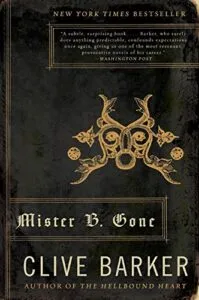
However, I have read and enjoyed books that implement this type of narrator. One book that comes to mind when I think of this type of narrator is Clive Barker’s Mister B. Gone. At the very beginning, the narrator immediately beseeches the reader to burn the book. To say it’s a bit jarring is an understatement. When I read this book, that first sentence is what grabbed me. It left me feeling off-kilter and unsure whether or not I could trust this narrator. Of course, the final pages proved that my concerns were founded.
The Narrator Who is Unreliable Based on Reader Expectations
I know that is a very long way to describe a type of narrator. This is more of a niche situation but it is out there. Basically this is the narrator who doesn’t purposefully mislead you, and they have all their faculties intact. These narrators are unreliable because the reader allowed them to be. They didn’t intentionally mislead you about who or what they were. In some situations, they actually left it right there on the page, but because of how we read, out of habit or training, we missed the clues.
The perfect example of this is James Sheppard, the narrator from The Murder of Roger Ackroyd, who (again spoiler alert) is also the killer that Poirot is hunting. When I read this, I knew the twist thanks to a report I did on Agatha Christie in middle school. So, I read it with the intention to see the “clues.” When this was first published, the ending resulted in a lot of blowback against Christie. However, people would reread it and realize, “Actually, no…all the clues were there; we just overlooked them.”
Because that’s the thing: he never says he didn’t kill the man. When they go back to his house after hearing about the murder, Sheppard mentions looking in the office and seeing the the man “as I left him.” Well, yeah, because you left him dead.
The level of surprise that this twist caused was because of how we are as readers. We wouldn’t expect the narrator to be the bad guy, especially in a murder mystery. Even if there are unlikeable narrators, we expect that we can trust them. That is what makes this a brilliant twist; because at the time, it never entered someone’s head that the narrator, our view into the story, would be the bad guy.
Even if this wasn’t the first novel to use this twist, it is arguably the most well known. Nowadays, I think it would be more common or people would have a tendency to think of that as an option. But when it came out, it was quite a brilliant twist.
Unreliable Third-Person Narration
In the Read of Dead episode mentioned earlier, Rincey pointed out that all narrators could be considered unreliable. This is because they “always have a flawed perspective”. This is something that YA author Sarah Pinborough agrees with, saying:
The unreliable narrator is an odd concept. The way I see it, we’re all unreliable narrators of our lives who usually have absolute trust in our self-told stories. Any truth is, after all, just a matter of perspective.
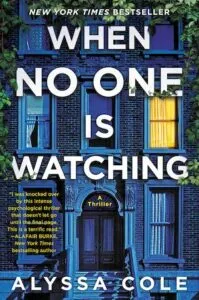
When No One is Watching is an interesting case for the idea of an unreliable third-person narrator. True, it is a dual third-person perspective. But Sydney is still one of our views into the story, which means that she is a narrator and she’s not exactly reliable.
Throughout the book, Sydney keeps making excuses for why people can’t talk to her mom. It makes sense that she does this for the parasitic realtors that wanted to take their brownstone. But she also avoids lettings beloved neighbors be able to contact her. Meanwhile, she constantly calls her phone, getting the voicemail each time. Later in the novel, she breaks down with Theo, the other narrator, and confesses her mother died and she buried her in the community garden. Which was quite an unexpected turn.
The only reason this twist wasn’t bigger for me is that I knew going in that her mom had died. While the book blurb doesn’t mention the mom, I remember there being information out there about this information book prior to the release. Now, had that not been around, then that twist would have completely floored me.
That said, I was still a little surprised when it was finally revealed on the page. This was all due to Sydney’s actions up to that point. The one that stuck out the most to me was calling her mom’s phone repeatedly. Now I know it was just to hear her mother’s voice again, which I get. But the shock factor would have been higher had that spoiler not been leaked.
(All of that is to say the people who advertise books like this need to do better to keep that under wraps.)
Conclusion
Books with this type of narrator are still not a go-to for me, but I am no longer as hesitant to pick up books with unreliable narrators, since it is really the type that will determine whether or not I will enjoy the book. I still don’t like the intentionally unreliable one, though. This is why most of the thrillers over the last ten years are a pass for me.
That said, I am just one reader, and enough people do enjoy this kind of narrator that I know that will remain one of the more popular types. It will be interesting to see what the future will bring for unreliable narrators and the different ways future authors will put their own spin on it.


